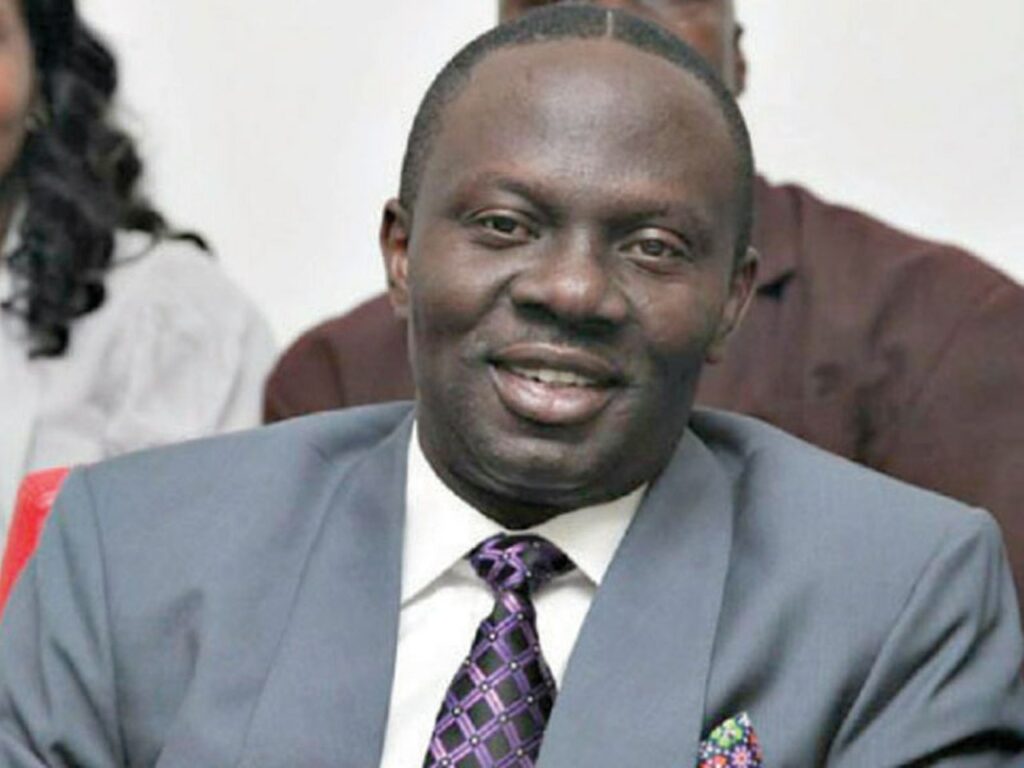 The primaries of the political parties which produced candidates for the 2015 elections have ended. However, Nigeria is the poorer for it. As it was in 1999, so it is in 2014. In fact, rather than getting better, things have indeed taken a turn for the worse. Give it to Nigeria’s rotten political space. Everything that has changed remains shoddy.
The primaries of the political parties which produced candidates for the 2015 elections have ended. However, Nigeria is the poorer for it. As it was in 1999, so it is in 2014. In fact, rather than getting better, things have indeed taken a turn for the worse. Give it to Nigeria’s rotten political space. Everything that has changed remains shoddy.
Suddenly, within a decade and a half, party politics, in the reckoning of genuinely fair-minded observers, has earned its place as the unyielding reservoir of frightening national depression. And as this feeling intensifies among the citizenry, the inclination towards national disbelief would hardly be kept at bay.
Every day, the urge to dismiss that animating dream of a vibrant democratic nation gets stronger as Nigerian politicians – especially the ones holding offices at all the levels of government – perpetually exhibit a brazen betrayal of the promise and optimism held out for democracy at the end of military dictatorship more than fifteen years ago.
In their typical self-declared effort to ‘move the country forward,’ our politicians have systematically thrown it into reverse gear and heedlessly guided it toward the precipice, thereby priming a hard-earned democracy for an annihilation of unimaginable consequences. And so in view of what is fast turning out to be a gradual replacement of hope with horror, one would not be exaggerating to say that this democracy is in full retreat.
A clear indication of this dismal outlook is the primaries recently concluded by the various political parties. Except perhaps the presidential primary of the All Progressives Congress (APC) which has a convincing trace of a transparently credible process, all other primary elections across the parties can only be summed up in one word: travesty. Should you ever attempt to look for what conspired to consummate the mockery that defined these events, look no further than the petty-minded state governors, the corrupt party organs and the dishonest ‘godfathers’ lurking around shamelessly in all the political parties and governments across Nigeria.
In most cases, these agents of extraction already had ‘anointed’ aspirants including but not limited to governors themselves, party stalwarts and their spouses, their sons and daughters whom they imposed on others, thus forcing those willing to contest alongside the ‘anointed’ to back out by whatever detestable means including threats.
Those who had the guts to defy such orders and insist on testing their popularity at the polls succumbed to the clout of the clique who ensured they were duly rigged out by the party machinery which easily denied them equal chance of success with the ‘anointed.’ In other words, there was a glaring absence of a level playing field all through – the same problem over which concerned Nigerians have been shouting themselves hoarse since the start of this democracy.
One way in which blatant rigging was perfected in these primaries was through the delegates who voted at the elections. The list containing delegates’ names, which can be described as a micro voters’ register of elected ad hoc and statutory delegates that ought to be available to all stakeholders including the Independent National Electoral Commission (INEC), was hijacked and manipulated by some party chieftains.
In a desperate move that bespeak pure fraud, governors, together with a few top shots in the parties, commandeered the list of delegates and ensured that only the names of those who will carry out their wish formed the majority. While the ‘anointed’ aspirants were helped with easy access to these delegates with whom they mapped out strategies for dubious victories, disfavoured aspirants were effectively shut out, and thus forced to go into elections without the benefit seeing the list of delegates, let alone knowing who they were.
On occasion, as many as three different lists of delegates were circulated for a particular election with only the ‘anointed’ aspirants knowing which one was authentic. Delegates themselves, shorn of any modicum of reliability, basked in their status as the ‘beautiful bride’ and purchasable commodities mainly available to the highest bidder.
Even when delegates were identified, other aspirants who didn’t enjoy the favour of party bigwigs were unable to access them as did the preferred contestants as a result of the numerous stumbling blocks planted in their way. In many places, delegates were quarantined in government houses, rendered incommunicado and subsequently bussed to election venues with government vehicles. As a result, accreditation that ought to have begun at 8.00am did not start until well after midday.
In addition, sensitive materials were not on display as required by law, and in what must qualify to be one of the worst forms of recklessness, non-delegates were accredited to take part in the exercise. There were also cases of intimidation, and violence broke out in many areas as rival supporters of aspirants engaged themselves with guns and other dangerous weapons.
By and large, instead of real elections, what the people witnessed was simply selection and the emergence of ‘consensus’ candidates. This led to many parallel primaries at which with many contestants who felt cheated declared themselves winners, thus sending their enthusiastic supporters into long hours of wild jubilation. Those who found that cause less honourable simply dumped their parties and moved on to other welcoming parties to try their luck. This is the reason the gale of defections has intensified at this moment.
As mentioned earlier, apart from the APC presidential primary none of the primaries just concluded passed the test of what elections should be in a democracy. And it comes down to one thing: lack of internal democracy across the political parties. It is a nagging subject that must be promptly resolved appropriately. Until that is done, the 2015 elections, and the ones that will come later, will be another charade. And the ultimate casualty? Nigeria’s democracy.
Godwin Onyeacholem is a journalist based in Abuja. He can be reached on gonyeacholem@gmail.com



